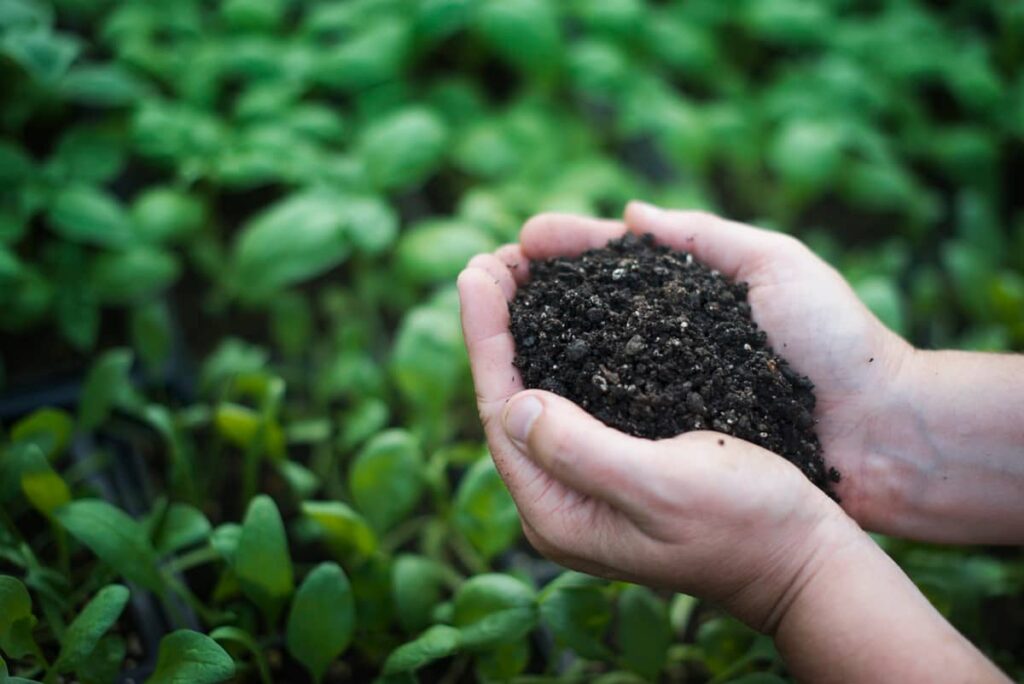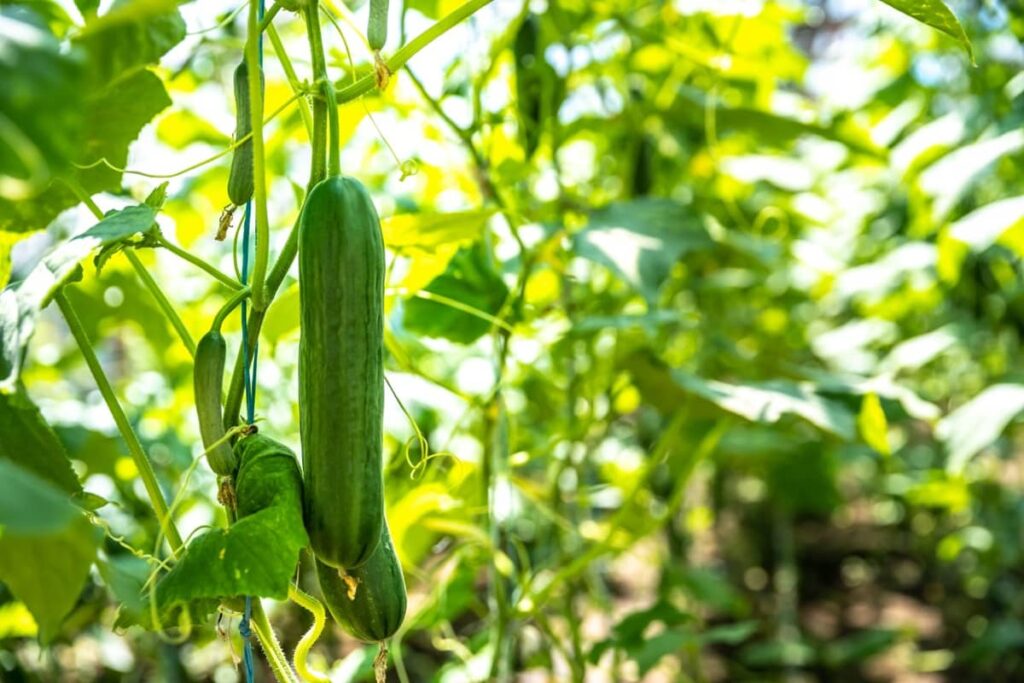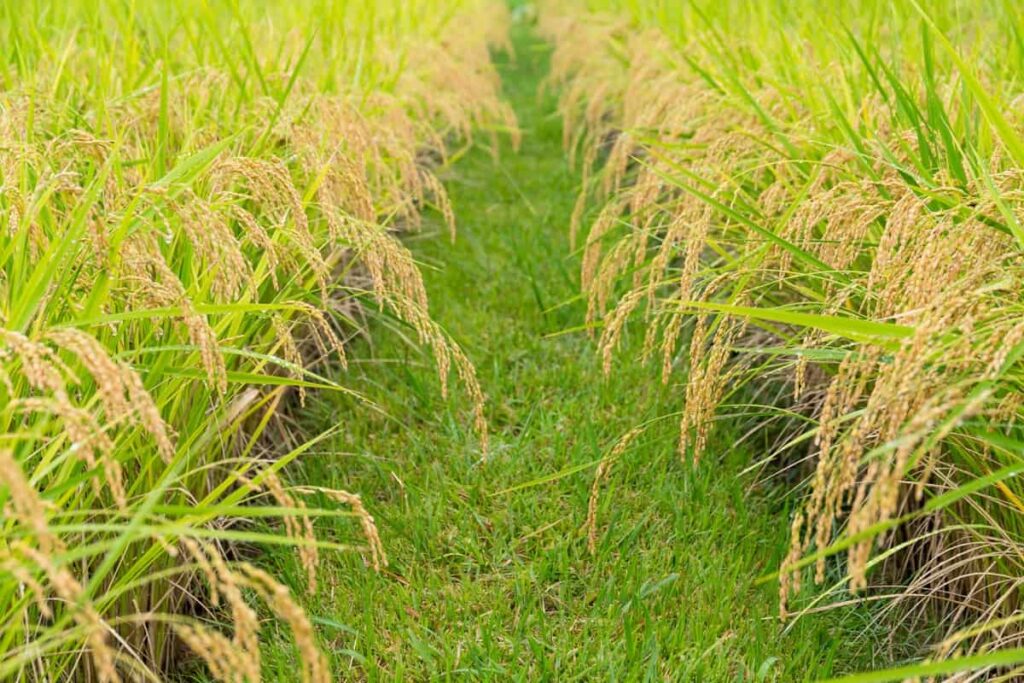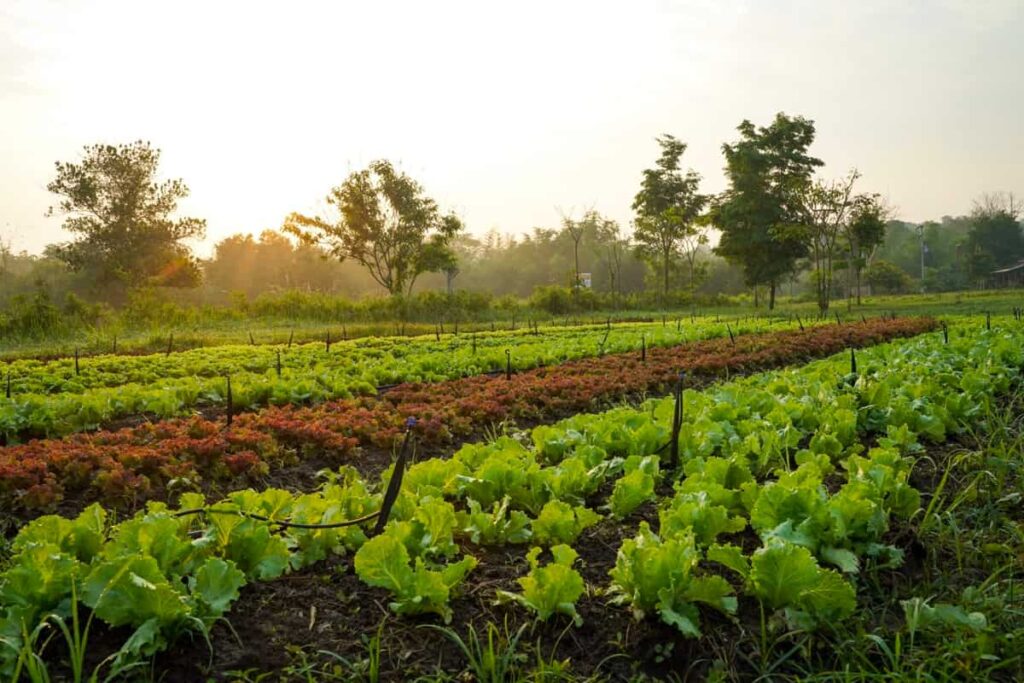Welcome to our blog post on “Exploring the Essence of Korean Natural Farming: Harmony in Soil and Soul.” This article will dive into the fascinating world of Korean natural farming and uncover its profound impact on the soil and the soul. With a simple and engaging tone, we aim to make this read informative and enjoyable for everyone.

What is Korean Natural Farming?
Korean Natural Farming (KNF) is a fantastic organic farming approach that harnesses the power of indigenous microorganisms (IMO), including bacteria, fungi, nematodes, and protozoa, to cultivate nutrient-rich soil and achieve abundant crop yields. The beauty of KNF lies in its ability to accomplish these remarkable results without the need for harmful herbicides or pesticides.
KNF promotes self-reliance by minimizing reliance on external resources and instead focuses on recycling farm waste to create biologically active inputs. Although KNF has gained widespread recognition, scientific research on its advantages still needs to be conducted. However, the potential benefits of this farming method are incredibly intriguing and warrant further exploration.
Korean Natural Farming Techniques
Korean Natural Farming (KNF) employs various techniques to nurture a thriving ecosystem and maximize agricultural productivity. One such technique is fermented plant extracts (FPEs), made by fermenting various plants in water for a specific duration. These FPEs are rich in nutrients and beneficial microorganisms, providing crops with natural fertilization and disease resistance.
KNF also utilizes Indigenous Microorganisms (IMO) solutions, created by collecting microorganisms from local environments and fermenting them with a food source. IMO solutions enhance soil health, improve nutrient absorption, and combat harmful pathogens. Additionally, KNF advocates for creating nutrient-rich compost by combining organic materials, such as crop residues, animal manure, and kitchen scraps.
Benefits of Korean Natural Farming
- Soil enrichment: Applying Indigenous Microorganism (IMO) solutions and fermented plant extracts (FPEs) promotes soil health, improving nutrient availability and enhancing microbial activity.
- Fertilizer: KNF offers natural fertilization through inputs like Fermented Plant Juice (FPJ) and Fermented Microorganism Concentrate (FMC). These inputs add nutrients and microorganisms to depleted soils, boosting plant growth and productivity.
- Foliar feeding: Directly applying nutrients via foliar feeding allows for efficient nutrient uptake by plants, particularly during the reproductive stage when root activity decreases. This method reduces nutrient requirements and enhances nutrient utilization by crops.
- Seed/seedling preparation: Soaking seeds in various KNF mixtures improves germination rates and enhances seedling vigor, depending on the treated seed type.
- Vegetative growth: Different KNF inputs, such as FPJ and nitrogen-rich Fish Amino Acid (FAA), promote vigorous vegetative growth in plants, contributing to healthier and robust crops.
- Flowering and fruiting: Using inputs like Fruit Fermented Juice (FFJ) and Water-Soluble Calcium Phosphate (WCAP) enhances flower development, improves fruit quality, and increases the sugar content.
- Animal husbandry: KNF techniques can be applied in animal husbandry, where cultured soil converts animal excrement into nutrient-rich soil, reducing odors and improving waste management.
- Composting: Using LAB (Lactic Acid Bacteria) in composting helps neutralize ammonia gas, promoting proper decomposition and reducing composting issues.
- Pest management: KNF employs natural pest control methods, including insect attractants and soapy water sprays, effectively managing pests without relying on harmful chemicals.
- Soap water and hot pepper water: Soapy water (SoWa) and hot pepper water (HPW) effectively control aphids and mites, providing a non-toxic approach to pest management.
Composting Methods in Korean Natural Farming
Composting is essential to Korean Natural Farming (KNF) because it recycles organic materials and generates nutrient-rich soil amendments. KNF employs LAB (Lactic Acid Bacteria) to improve decomposition and reduce ammonia gas emissions. LAB aids in the breakdown of organic matter, resulting in high-quality compost that enriches the soil and promotes plant health.
In case you missed it: 10 Best Reasons to Use Diatomaceous Earth in Your Garden: Benefits, Uses, and Composition

Effective Microbial Inputs for Korean Natural Farming
One such input is the Indigenous Microorganism (IMO) solution, created by collecting beneficial microorganisms from local environments and fermenting them with a food source. These diverse microorganisms contribute to nutrient cycling, disease suppression, and overall soil ecosystem balance.
Fermented Plant Juice (FPJ) and Fermented Microorganism Concentrate (FMC) are commonly used in KNF. FPJ contains beneficial enzymes, growth regulators, and nutrients, while FMC provides a concentrated source of microorganisms. These microbial inputs can improve soil fertility and plant resilience, leading to sustainable and productive farming systems.
Korean Natural Farming for Sustainable Agriculture
Korean Natural Farming (KNF) is a sustainable agricultural approach emphasizing natural inputs, beneficial microorganisms, and ecological balance. Utilizing Indigenous Microorganisms (IMO), fermented plant extracts, and other KNF techniques promotes soil fertility, nutrient cycling, and pest management without relying on synthetic chemicals. KNF methods have shown positive results in improving crop yields, enhancing soil health, and reducing environmental impacts.
How to Apply Korean Natural Farming Principles
- Utilize the nutrients within seeds: KNF emphasizes using seed nutrients by soaking seeds in mixtures like Fermented Plant Juice (FPJ) and Oriental Herbal Nutrient (OHN) before planting. This enhances seed germination and provides initial nourishment to seedlings.
- Harness indigenous microorganisms (IMO): IMOs play a crucial role in KNF. Collecting local microorganisms and fermenting them with a food source creates IMO solutions. These solutions can enhance soil health, nutrient absorption, and plant growth.
- Maximize inborn potential with fewer inputs: KNF promotes allowing plants to express their innate growth potential with minimal external inputs. Plants can thrive without excessive intervention by creating a favorable environment, optimizing soil conditions, and fostering natural biological processes.
- Avoid commercial fertilizers: KNF discourages synthetic fertilizers and instead focuses on organic alternatives like FPJ, FFJ, and Fermented Fruit Juice (FFJ), which provide essential nutrients in a natural and balanced manner.
- Avoid tilling: Tilling disrupts soil structure and microorganisms, leading to erosion and nutrient loss. KNF advocates for minimal or no tilling to preserve soil health and biodiversity.
- Limit livestock-waste usage: KNF typically avoids the direct application of livestock manure, reducing the risk of pathogen transfer in the food production chain. However, in nitrogen-poor conditions, judicious use of manure can boost yield, but precautions should be taken.
Korean Natural Farming Solutions for Pest Control
Korean Natural Farming (KNF) provides effective solutions for pest control using natural methods. These include insect attractants, soap water (SoWa), and hot pepper water (HPW). Insect attractants like aromatic (AIA) and fluorescent (FIA) traps lure pests away from crops. SoWa and HPW, when sprayed on plants, control aphids, and mites by causing water evaporation, heat loss, and condensation, leading to pest elimination without harmful chemicals.
Korean Natural Farming Recipes for Soil Amendments
One recipe involves making Fermented Plant Juice (FPJ) by fermenting fresh plant material in a sugar solution. Another recipe produces Indigenous Microorganism (IMO) by fermenting rice and capturing beneficial microorganisms. Fish Amino Acid (FAA) can be made by fermenting fish waste. These homemade soil amendments enhance nutrient availability, promote microbial activity, and contribute to healthy soil ecosystems in KNF practices.
In case you missed it: How Do You Grow Cucumbers in a Greenhouse: A Step-by-Step Guide for Beginners

Organic Pesticides in Korean Natural Farming
Organic pesticides play a crucial role in Korean Natural Farming (KNF) by providing effective pest management while adhering to organic principles. KNF utilizes natural ingredients such as fermented plant extracts (FPEs) and plant-based solutions to control pests. These organic pesticides are formulated to target specific pests while minimizing harm to beneficial insects and the environment. By employing these eco-friendly alternatives, KNF farmers can maintain pest control without compromising the health and sustainability of their farming systems.
Natural Fertilizers for Korean Farming Practices
Natural fertilizers, such as Fermented Microorganism Concentrate (FMC), are essential in Korean farming, particularly Korean Natural Farming (KNF). FMC enriches depleted soil with vital nutrients and microorganisms when applied before sunset on a cloudy day. Immersing it in water with other KNF inputs. Another effective method is foliar feeding, where nutrients are directly applied to the crops’ foliage, reducing overall nutrient requirements.
This approach benefits young seedlings with limited root systems and maximizes nutrient uptake during the reproductive stage when root activity decreases. By utilizing natural fertilizers effectively, Korean farming practices ensure optimal nutrient availability, overcoming nutrient binding and leaching issues for sustainable crop growth.
Korean Natural Farming Inputs for Plant Health
Korean Natural Farming (KNF) is a method that promotes plant and soil health by encouraging self-reliance and closed-loop systems. Research conducted in Hawaii showed that incorporating KNF practices generally improved plant health on vegetable farms. KNF was particularly beneficial for soybean production, leading to an increased presence of beneficial organisms like omnivores and predatory nematodes and a more stable soil structure.
KNF enhances soil bioavailability, making crucial nutrients more accessible to plants. Basic KNF principles include fertilizing techniques using fermented plant juice, fish amino acid, water-soluble calcium phosphate, and water-soluble calcium. Fermented plant juice is made from locally sourced plants and brown sugar, while fish amino acid utilizes fermented fish.
In case you missed it: High Yield Hybrid Paddy/Rice Varieties in India: For Rabi and Kharif Seasons

Water-soluble calcium phosphate is produced from charred animal bones and vinegar, and water-soluble calcium is obtained from roasted eggshells and vinegar. These fertilizers can be applied as root drenches, foliar sprays, or soil drenches, providing essential nutrients and promoting healthy microbial activity.
Korean Natural Farming Techniques for Weed Control
One method involves using vinegar-based herbicides, which can be sprayed directly on weeds to inhibit their growth. Another technique is the application of natural mulch, such as straw or wood chips, which suppresses weed emergence by blocking sunlight. Additionally, KNF promotes regular soil cultivation to disrupt weed seedlings and prevent their establishment.
Enhancing Nutrient Availability With Korean Natural Farming
Applying Indigenous Microorganism (IMO) solutions and fermented plant extracts (FPEs) promotes the growth of beneficial microorganisms, improving nutrient cycling and mineralization. These microorganisms break down organic matter, releasing essential nutrients in a form readily accessible to plants. KNF methods also involve foliar feeding, which directly supplies nutrients to plants, bypassing soil limitations and maximizing nutrient absorption.
Korean Natural Farming Practices for Greenhouse Cultivation
- Soil preparation: Enrich the greenhouse soil with organic matter and compost. This enhances soil fertility and microbial activity.
- Indigenous Microorganisms (IMO) application: Apply IMO solutions to the greenhouse soil to promote beneficial microbial populations, which aid in nutrient cycling and disease suppression.
- Nutrient management: Utilize natural fertilizers like Fermented Plant Juice (FPJ), Fish Amino Acid (FAA), and Water-Soluble Calcium Phosphate (WCAP) to provide essential nutrients to plants.
- Integrated Pest Management (IPM): Implement IPM strategies such as using insect attractants, soapy water sprays, and physical barriers to manage pests without relying heavily on synthetic pesticides.
- Foliar feeding: Apply foliar sprays containing micronutrients, growth-promoting substances, and beneficial microorganisms to enhance plant health and productivity.
- Environmental control: Optimize greenhouse temperature, humidity, and ventilation to create an ideal crop-growing environment.
- Crop rotation and diversity: Practice crop rotation and intercropping to prevent soil depletion and reduce the risk of pest and disease outbreaks.
In case you missed it: How to Grow Lettuce and Salad Mix in Hydroponics: A Step-by-Step Guide

Improving Crop Yield With Korean Natural Farming
Fermented plant extracts (FPEs) and Indigenous Microorganism (IMO) solutions enrich the soil with nutrients and beneficial microorganisms, enhancing plant growth and productivity. KNF inputs like Fish Amino Acid (FAA) and Water-Soluble Calcium Phosphate (WCAP) stimulate vegetative growth, flowering, and fruiting, increasing crop yields. Additionally, foliar feeding and seed/seedling preparation techniques in KNF optimize nutrient uptake and improve germination rates, further contributing to improved crop yield and overall farm productivity.
Implementing Korean Natural Farming in Small-scale Agriculture
By implementing KNF in small-scale agriculture, farmers can promote sustainable practices, increase yields, and nurture healthy ecosystems while reducing reliance on external inputs and minimizing environmental impacts.
- Start with soil improvement: Use KNF techniques like IMO solutions, fermented plant extracts, and LAB to enhance soil fertility, nutrient availability, and microbial activity.
- Emphasize recycling: Utilize farm waste, such as crop residues and animal manure, to create nutrient-rich compost and reduce external inputs.
- Adopt natural pest control: Implement KNF pest management methods, including insect attractants, soapy water sprays, and hot pepper water, to minimize the use of chemical pesticides.
- Enhance plant growth: Apply KNF inputs like FPJ, FAA, and WSCA to stimulate vegetative growth, improve flowering and fruiting, and enhance overall crop health.
- Train and educate: Acquire knowledge and training on KNF techniques through workshops, courses, and collaboration with experienced practitioners.
Promoting Beneficial Insects in Korean Natural Farming
Korean Natural Farming (KNF) encourages the presence of beneficial insects, which are essential for pest control and ecosystem balance. KNF practices attract and sustain these beneficial insects by fostering a favorable habitat. Maintaining biodiversity on the farm and planting a wide variety of flowering plants encourages populations of beneficial insects. This natural approach reduces chemical pesticides, contributes to ecological sustainability, and aids in maintaining a healthy and balanced farm ecosystem.
Natural Growth Regulators in Korean Farming
One example is gibberellic acid (GA), a plant hormone that stimulates seed germination, increases fruit size, and enhances flowering. Another natural growth regulator is abscisic acid (ABA), which helps regulate seed dormancy, control plant stress responses, and promote fruit ripening. Additionally, indole-3-acetic acid (IAA), an auxin type, influences plant growth and development, including root formation and elongation. These natural growth regulators in Korean farming contribute to optimal plant growth and improved crop yields.
Korean Natural Farming for Regenerative Agriculture
KNF promotes soil health through the use of Indigenous Microorganisms (IMO) and natural inputs, fostering microbial diversity and nutrient cycling. It minimizes external inputs and focuses on organic waste recycling, reducing chemical dependency. KNF techniques improve soil structure, water retention, and nutrient availability, contributing to long-term sustainability.
In case you missed it: Best Organic Fertilizers to Feed Indoor Plants: Homemade and Natural Recipes

Conclusion
Korean Natural Farming offers a harmonious approach to agriculture, nurturing the health of both the soil and the soul. By prioritizing sustainable practices and working in harmony with nature, it holds the potential to transform our agricultural systems for the better.
- Profitable Village Farming Business Ideas in 2024
- High-Yield Aquaculture: Fast-Growing Fish for Farming
- Effective Fish Pond Construction Techniques for Beginners
- Irrigation and Water Management in Pineapple Farming
- Blossom to Harvest: Mastering Flowering and Pollination in Papaya Farming
- Pig Fattening Essentials: From Selection to Sale for Beginners
- Raising Wagyu Cattle: A Complete Guide for Premium Beef Production
- Soil Types and Their Water Holding Capacity
- Optimizing Irrigation Schedules for Coconut Groves for Enhanced Yield
- Espresso Your Garden: Coffee Grounds for Healthier Acid-Loving Plants
- The Best Soil Mix for Snake Plants: How to Mix Your Own Snake Plant Soil
- Green Thumb Success: Expert Tips for Cultivating Greenhouse Beans All Year Round
- Bloom All Year Round: The Ultimate Guide to Indoor Hyacinth Care
- Eco-Friendly Gardening: How to Make Liquid Fertilizer from Kitchen Waste
- Ultimate Guide to Grow Anise in Pots: Explore Seed Propagation to Harvesting
- Guide to Raising Chester White Pigs: Discover Breed Facts to Growth Management
- Mastering the Elegance: The Ultimate Guide to Weeping Cherry Tree Care, Planting, and Maintenance
- Ultimate Guide to Planting Garlic in Grow Bags: Growing Strategies for Beginners
- How to Fix Spider Plant Leaf-Related Problems: Natural and Organic Remedies
- 10 Reasons Why Your Tulsi Plant is Shedding Leaves: Home Remedies and Solutions
- Optimizing Growth and Yield: The Advantages of Palm Bunch Ash Fertilizer
- Utilizing Neem Oil Extract as a Natural Pesticide for Hydrangea
- From Soil to Harvest: Various Ways in Which Farmers Can Use AI Tools
- Steps to Encourage and Induce Citrus Flowers: A Comprehensive Guide
- How to Fix Snake Plant Leaf-Related Issues: Natural and Organic Remedies
- Transform Your Garden into a Fragrant Oasis with Raat Ki Rani (Night Blooming Jasmine)
- Discover the Ideal Chicken Breeds for Philippine Farms
- How to Create a Poultry Egg Farm Business Plan for Profits
- Grow Lemon Cucumbers Like a Pro: Insider Techniques for Bountiful Yields
- Ultimate Guide to Caring for Your Pink Princess Philodendron: Tips for Thriving Variegation
- Areca Nut Profit Per Acre: Calculating Yield and Cost of Cultivation
- How Kaveri Chicken is Becoming a More Profitable Breed in Indian Backyards
- Transform Your Barn: 9 Steps to Convert a Horse Stall into a Chicken Coop
- Exploring Suffolk Sheep Disadvantages with Limitations and Challenges
- Guide to Solving Potted Lemon Tree Problems: How to Revive Lemon Tree in Containers
- Steps to Encourage Female Pumpkin Flowers: Best Strategies for More Flowers and High Yields
